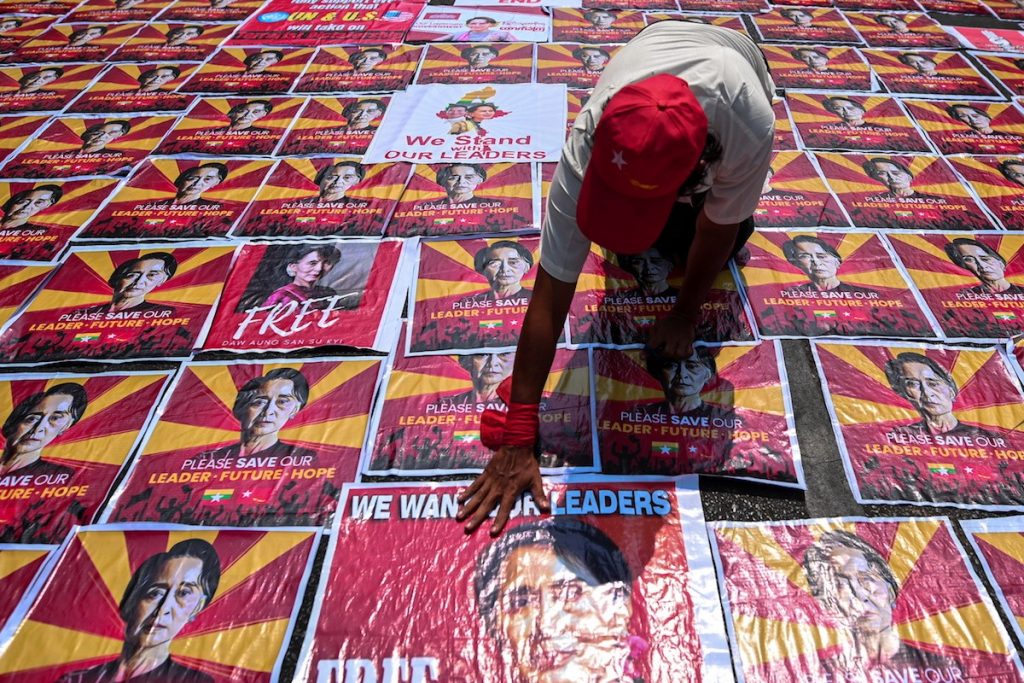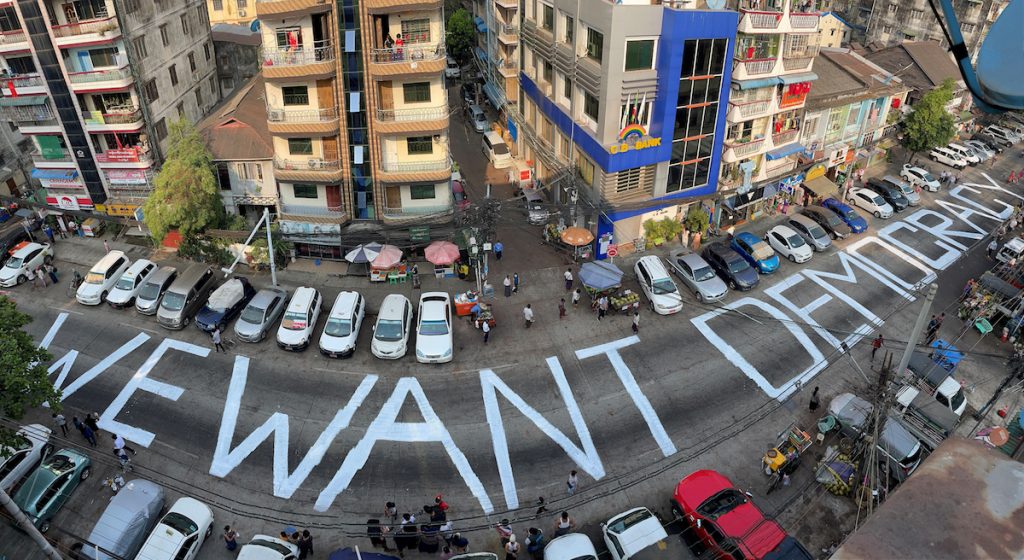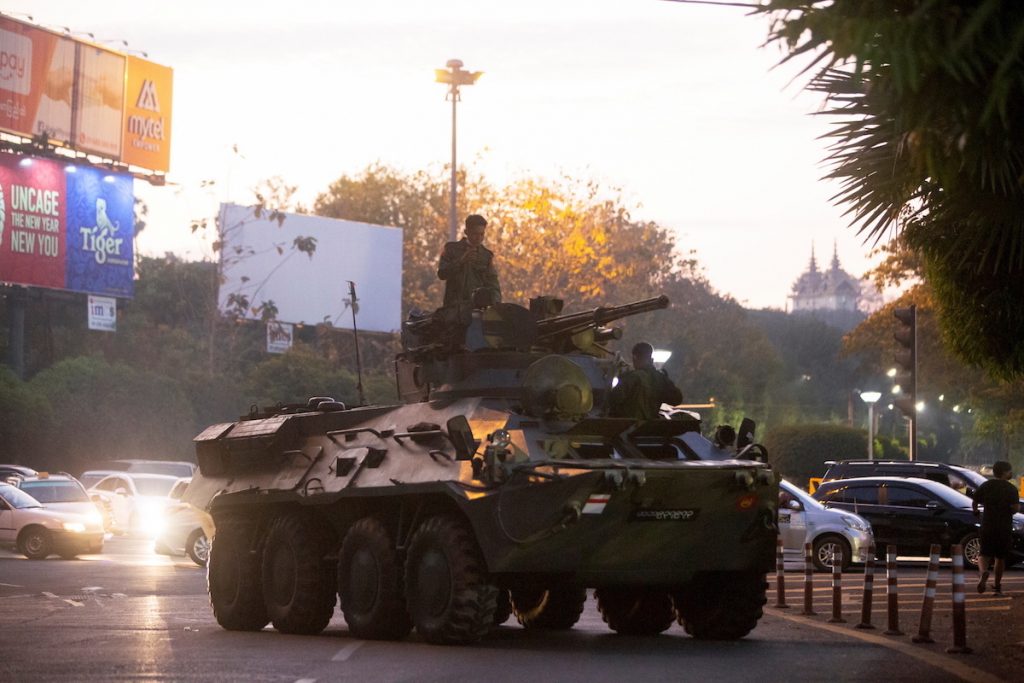
Myanmar’s military-appointed foreign minister flew into Thailand on Feb. 24, a Thai government source said, as Myanmar’s neighbors intensified efforts to resolve a crisis that began when its army seized power in a Feb. 1 coup.
The minister, Wunna Maung Lwin, arrived for talks on diplomatic efforts by the Association of South East Asian Nations (ASEAN), the Thai source said, as opponents of the coup again took to the streets in Myanmar.
The army seized power after alleging fraud in a Nov. 8 election swept by Aung San Suu Kyi’s National League for Democracy (NLD), detaining her and much of the party leadership. The electoral commission dismissed the fraud complaints.
Within ASEAN, Indonesia has taken the lead in efforts steer a path out of the crisis, but some democracy activists in Myanmar fear any deal with the junta would confer legitimacy on it and its scrapping of the November election result.
A few dozen protesters gathered outside the Thai embassy in the main city of Yangon with signs reading: “Respect our vote” and “We voted NLD”.
“Our foreign minister is Aung San Suu Kyi,” the protesters chanted, referring to the post she held in the government she led after winning a 2015 election in a landslide.
The Thai government source said the Myanmar military government’s foreign minister would meet Prime Minister Prayuth Chan-ocha and Foreign Minister Don Pramudwinai.
This week has seen huge rallies and a general strike to denounce the coup and demand Suu Kyi’s release despite a warning from authorities that confrontation could get people killed.
A Reuters report this week fanned suspicions that Indonesia’s approach could yield too much ground to the junta.
The report, based on sources, said Indonesia was proposing that ASEAN members send monitors to ensure the generals stick to their promise of fair elections.
The military has not given a time frame for a new election but it imposed a one-year state of emergency when it seized power so it would likely be after that.

An Indonesian foreign ministry spokesman later said it was not backing a new election. Its foreign minister, Retno Marsudi, who is in Thailand, had been expected to fly to Myanmar but the trip was off, her ministry said.
“After taking into account current developments and the input of other ASEAN countries, this is not the ideal time to conduct a visit,” Indonesian foreign ministry spokesman, Teuku Faizasyah, told a briefing in Jakarta.
Worry over violence
The Myanmar-based Future Nation Alliance activist group said, earlier in a statement, a visit by Retno would be “tantamount to recognizing the military junta”.
The group demanded foreign officials meet Htin Lin Aung, a member of a committee representing ousted members of parliament — known by the initials CRPH — who has been appointed the “sole responsible official for foreign relations”.
Protesters in the second city of Mandalay marched on Feb. 24 holding up signs of support for the Committee Representing Pyidaungsu Hluttaw, or parliament. A procession of elephants also marched in Mandalay.
Military chief General Min Aung Hlaing has called for state spending and imports to be cut and exports increased to revive what he called an ailing economy.
He did not link the protests to economic problems but said the authorities were following a democratic path in dealing with them and police were using minimal force, such as rubber bullets, state media reported.

Security forces have shown more restraint compared with earlier crackdowns against people who had pushed for democracy during almost half a century of direct military rule.
Even so, three protesters have been shot and killed. The army has said one policeman died of injuries sustained during the protests.
The crisis has restored Myanmar’s reputation as the problem member of the 10-country ASEAN and the diplomatic scramble by its neighbors comes as wider international concern is growing.
The Group of Seven (G7) rich nations on Feb. 23 condemned intimidation and oppression of those opposing the coup. “Anyone responding to peaceful protests with violence must be held to account,” G7 foreign ministers said in a statement.
Western nations sought to increase pressure on the junta this week with the European Union warning it was considering sanctions that would target businesses owned by the army.
The United States imposed sanctions on two more members of the junta and warned it could take more action.
China, which has traditionally taken a softer line, said international action should contribute to stability, promote reconciliation and avoid complicating the situation, media reported.
Source: Licas Philippines
0 Comments